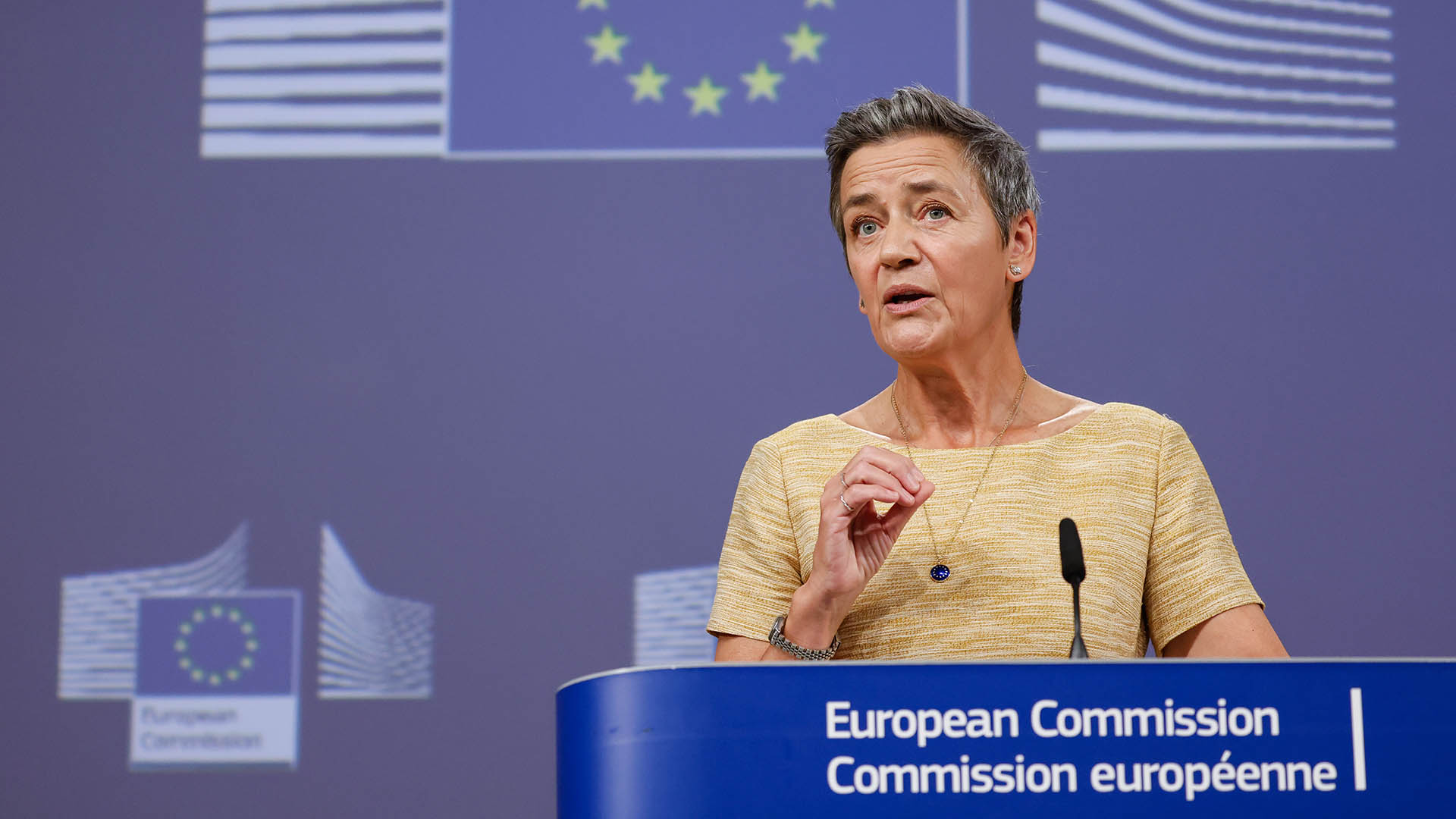Top EU court rules Apple owes Ireland over $14B in back taxes
The court concluded Ireland illegally cut the tech company a preferential tax deal, after Paradise Papers revealed major tax advantages.

In a blow to Apple, the European Union Court of Justice ruled Tuesday that the tech giant must pay over 13 billion euros, or more than $14 billion, in back taxes to Ireland.
The ruling ended a years-long legal saga that began in 2016, when the European Commission, the EU’s executive body, ordered Apple to pay Ireland 13 billion euros in unpaid back taxes. Apple and Ireland later filed an appeal.
In 2017, ICIJ’s Paradise Papers investigation exposed the offshore activities and interests of over 120 world leaders and politicians, as well as the tax engineering of more than 100 multinational corporations.
Among those companies was Apple: documents showed how the tech company secretly reorganized its Irish companies in a way that allowed for certain tax advantages that were not offered to other companies.
Today is a huge win for European citizens and tax justice.
👉In its final judgment, @EUCourtPress confirms @EU_Commission 2016 decision: Ireland granted illegal aid to @Apple.
Ireland now has to release up to 13 billion euros of unpaid taxes.
— Margrethe Vestager (@vestager) September 10, 2024
Tuesday’s decision overturned a 2020 ruling from a lower court and backed the European Commission’s claims that corporate tax rates as low as 0.005% represented an unlawful subsidy for Apple, concluding in a statement that: “Ireland granted Apple unlawful aid which Ireland is required to recover.”
Representatives from both Apple and the Irish government strongly refuted the court’s finding that Ireland gave Apple special treatment.
“We always pay all the taxes we owe wherever we operate and there has never been a special deal,” an Apple spokesman told reporters Tuesday. “The European Commission is trying to retroactively change the rules and ignore that, as required by international tax law, our income was already subject to taxes in the US.”
The U.S. tech giant has had a presence in Ireland since 1980, and currently employs about 6,000 people in Cork.
It’s very important to show European taxpayers that once in a while tax justice can be done.
— Margrethe Vestager, the European Union’s competition chief
“The Irish position has always been that Ireland does not give preferential tax treatment to any companies or taxpayers,” a statement from Jack Chambers, Irish minister of finance, read. “Ireland is an active participant in international tax discussions and has also made necessary changes to its taxation regime as international tax rules have developed over time.”
Reporting in 2017 by ICIJ partners showed how Ireland, the Netherlands and Luxembourg regularly used their veto powers to block reform of EU-wide efforts to set common standards to curb tax avoidance by multinational corporations.
Representatives of the Irish government told the Irish Times that the multi-billion euro windfall from Apple, which is being held in escrow, will not change spending plans for next year.
Margrethe Vestager, the European Union’s competition chief, said in a press conference Tuesday that the legal win brought her close to tears, Politico reported.
“It was a win that made me cry because it is very important,” Vestager said. “It’s very important to show European taxpayers that once in a while tax justice can be done.”
Tax justice advocates celebrated the win, but pushed for more. In a statement, Tax Justice Network’s CEO Alex Cobham said that while he welcomed the ruling, it “does nothing to address the continuing abusive tax practices of multinationals across the EU and around the world that are estimated to cost about half a trillion dollars in lost revenues every single year since the Apple case began.”
“Tax justice delayed is tax justice denied, and so there is little tax justice to celebrate today,” Cobham said. “What the Apple case points to is the need for a comprehensive reform of international tax rules.”